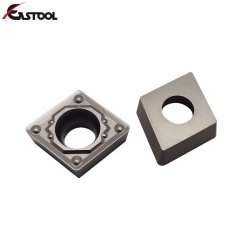Why Choose Tungsten Carbide Rings?_2

Introduction
Validation is the process of assessing whether a process or system meets predetermined requirements. In pharmaceutical manufacturing, it is essential to ensure that products are safe and effective. Three types of validation are typically used in pharmaceutical manufacturing: process validation, analytical method validation, and cleaning validation. Process validation ensures that manufacturing can produce a safe and effective product. Analytical method ensures that the methods used to test the product are accurate and reliable. Cleaning validation ensures that all traces of previous products are removed from the equipment before manufacturing of a new product begins.
Validation in Pharmaceutical Industry
Photo by Pixabay: https://www.pexels.com/photo/two-clear-glass-jars-beside-several-flasks-248152/ It is a critical part of pharmaceutical manufacturing because it helps to ensure that products are safe and effective. Without this process, there is no way to know if a product meets quality standards. Cleaning evidence is also essential for compliance with regulatory requirements. There are many benefits to this processes and systems in pharmaceutical manufacturing. It can help to improve product quality, reduce manufacturing costs, and improve compliance with regulatory requirements.
Types of Validation?
It is required for the pharmaceutical manufacturing process to ensure the quality of the WNMG Insert end product. Three types of validation are typically used: Process validation, analytical method validation, and cleaning validation.
Process validation
Process validation is a vital part of any pharmaceutical manufacturing operation. It helps to ensure that the products being produced are safe and effective. It also helps to ensure compliance with regulatory requirements. There are three main types of process: design validation, performance qualification, and process validation. Design validation ensures that the manufacturing process can produce a product that meets the required specifications. Performance qualification demonstrates that the process can consistently produce a product that meets the required specifications. Process validation provides evidence that the process can reproduce consistently reproducible Carbide Turning Inserts results. It is essential for ensuring patient safety and product quality in the pharmaceutical industry. It helps to ensure that products are manufactured consistently and meet all regulatory requirements.
Analytical method validation Validation
As the pharmaceutical manufacturing process is getting more and more complex, the need for analytical method evidence is also increasing. Validation is required to ensure that the methods used for analysis are accurate and precise. It also helps to ensure that the results of the analysis are reproducible. There are many benefits of analytical method evidence. It helps to improve the quality of the data generated from the analysis and can also help to reduce costs. In addition, it can help to improve communication between different departments within a company. A few things need to be considered when performing analytical method validation:
Cleaning Validation
Cleaning process verifies that cleaning procedures effectively remove all traces of contaminants from surfaces in the manufacturing environment. This is important because any residual contaminants could potentially contaminate finished products and cause them to fail quality control testing. Cleaning evidence studies typically involve swabbing (Disinfectant rotation validation)surfaces before and after cleaning to determine if any contaminants are remaining detectable levels.
Many factors must be considered when designing and conducting cleaning evidence studies, such as:
-What surfaces need to be tested? -What type of contaminants are present? -How much residue can be tolerated without affecting product quality? -What method will be used to collect samples? -What type of analytical methods will be used to detect contaminants? Cleaning evidence studies can be complex and time-consuming, but they are essential to ensuring the safety and quality of pharmaceutical products.
Why is validation required?
It is a process used to verify that a product or system meets specified requirements. In the case of pharmaceutical manufacturing, evidence is essential to ensure that the products being produced are safe and effective. There are many steps involved in this process, but some of the most important include process mapping, risk assessment, and creating detailed protocols. This process can be time-consuming and expensive, but it is essential to ensuring the quality of pharmaceutical products. It is required to ensure that the manufactured products are safe and effective. In the case of pharmaceuticals, this is essential to protect patients from potentially harmful side effects. Evidence is also important in other industries, such as food production, where it helps to ensure that products meet safety and quality standards.
What are the benefits of validation?
Validation is an integral part of pharmaceutical manufacturing as it helps to ensure that products are safe and effective. By validating processes and procedures, manufacturers can help to ensure that their products meet all relevant regulatory requirements. This can also help to improve product quality and safety and to reduce manufacturing costs.
Some of the benefits of validation include:
- Improved product quality and safety
- Reduced manufacturing costs
- Increased process efficiency
- Enhanced process control
- Reduced risk of product recalls or regulatory action
- Greater customer satisfaction
How to validate a process?
Evidence is establishing scientific evidence that a process, product, or service is fit for its intended purpose. In pharmaceutical manufacturing, evidence is required to ensure that the products produced are safe and effective.
There are three critical elements to a successful validation:
1. Documentation – all evidence activities must be thoroughly documented 2. Testing – all aspects of the process must be tested under various conditions 3. Review – an independent review team must sign off on the validation before it can be implemented The validation process can be time-consuming and expensive, but it is essential to ensuring the quality of pharmaceutical products.
Conclusion
Pharmaceutical manufacturing is a highly regulated industry where evidence is required to ensure product quality and safety. Evidence ensures that the equipment and processes used in manufacturing pharmaceutical products are fit for purpose and meet the required standards. Without evidence, there would be no guarantee that the products produced are of acceptable quality and safe for patients to use.
The Carbide Inserts Website: https://www.kingcarbide.com/pro_cat/1-4-shank-cutting-burr/index.html




Ingen kommentarer endnu